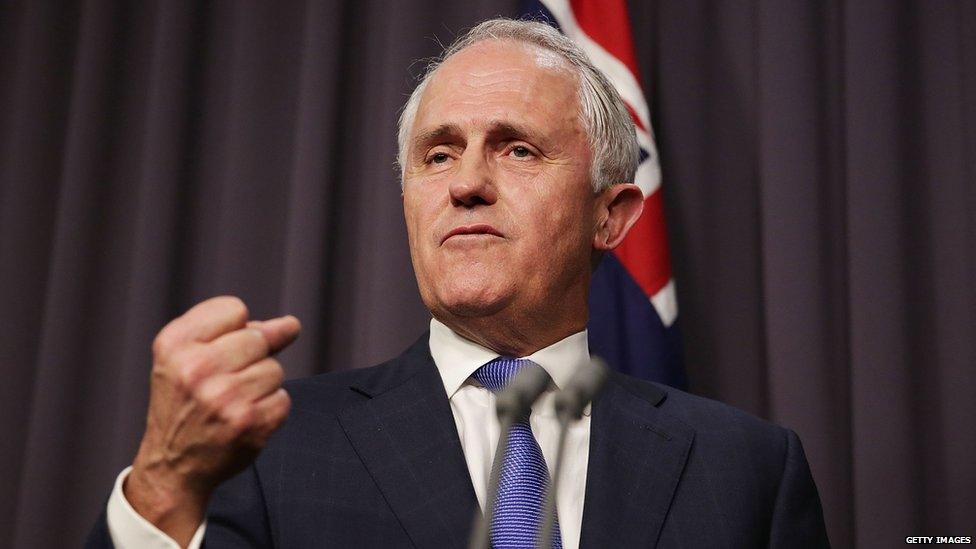Australian stocks fall after Turnbull recalls parliament
- Published

Australian Prime Minister Malcolm Turnbull could call for an early election to be held in July
Australian stocks have fallen after Prime Minister Malcolm Turnbull recalled parliament and brought the Budget forward, setting the scene for an early election.
The benchmark S&P/ASX 200 closed 0.3% lower at 5,166.57 points in Sydney.
Mr Turnbull has been trying to pass through labour reform bills but has faced hostility to it from the senate.
As a result, he's threatened to dissolve both houses of parliament and call an early election on 2 July.
Polls indicate his party are likely to win, even though Mr Turnbull's approval ratings have recently fallen, external.
Asian stocks overall are trading mixed following a decline in US oil prices and rebound in the dollar.
New Zealand's S&P/NZX 50 ended 0.3% higher at 6,641.94 while South Korea's Kospi shed 0.12% to 1,989.76 points.
Japan's financial markets are closed for a public holiday.
Late surge
Hong Kong's Hang Seng closed pretty much unchanged - just 0.06% higher at 20,684.15 while the Shanghai Composite rose 2.15% to 3018.80.
It is the first time in more than two months that the index has climbed above 3,000.
The late surge was fuelled by Chinese authorities relaxing investor borrowing rules.
The rules for so-called margin trading, a type of high-risk trading in which investors borrow money to buy shares, were loosened.
This type of trading was behind a boom in the Chinese stock market which ended last summer when the rules were tightened.
"The loosening could reignite interest in the equity market, particularly as the regulators' actions last year - to rein back private-sector broker leverage - helped trigger the correction in equity prices," said Koon Chow, senior macro and currency strategist at Union Bancaire Privee told Reuters.

What is margin trading?
It is a high-risk investing strategy that can produce big profits or big losses
Investors use their own money for a portion of their stock purchase
The remainder is borrowed from a broker
It allows investors to make bigger bets or buy more stock than they can normally
The broker charges interest on the loan, which can lead to debts if the investor's stock bet goes wrong
In China, margin trading has grown more than 10-fold in the past two years to a record 1.1tn yuan

Over the weekend China's central bank governor warned over the weekend that the country's corporate debt levels were too high and that more reforms in its capital markets were needed.
People's Bank of China (PBOC) governor Zhou Xiaochuan said in a speech at the China Development Forum conference that lending as a ratio to gross domestic product "is too high".